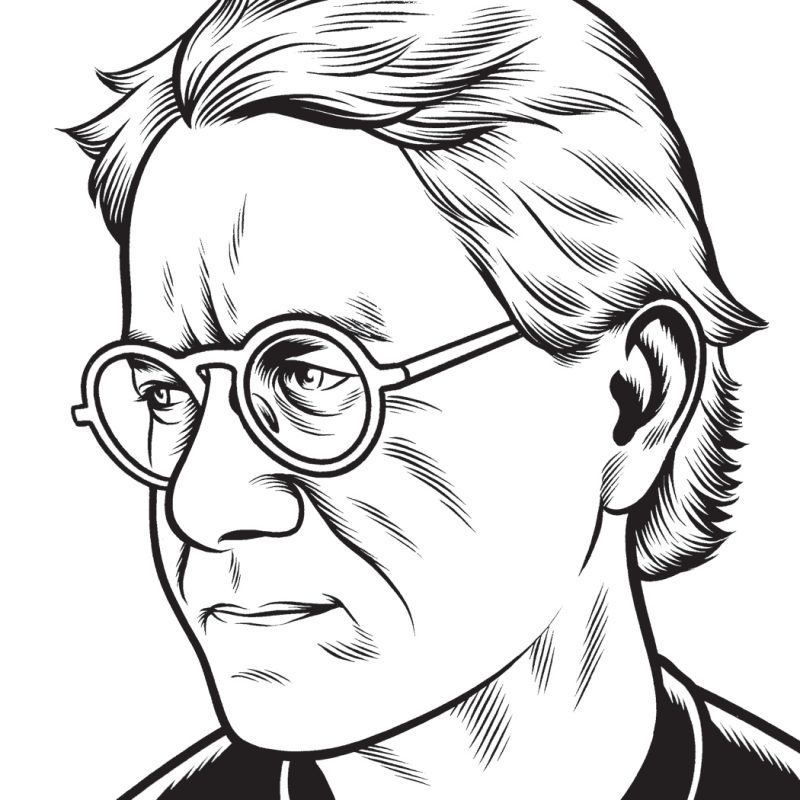(1) Scott Shepherd in Gatz, directed by John Collins, produced by Elevator Repair Service (Public Theater, New York, October 29, 2010). At the very end of this partly dramatized reading of The Great Gatsby—with various people working in and around a somewhat ratty 1980s office, here and there turning into Gatsby, Daisy, Tom Buchanan, and anyone else who appeared in Fitzgerald’s pages eighty-five years ago—Shepherd puts down the book he’s been reading from since he came across it in a desk compartment nearly eight hours before, and begins a drift all the way into the Nick Carraway he’s only intermittently portrayed, a drift into the canonized reverie of the final pages.
From “I see now that this has been a story of the West” to “ceaselessly into the past,” they comprise some of the most gorgeous American writing, words suspended in their own air—sentences that have been so relentlessly quoted, memorialized, worshiped, and declaimed that they are now clichés preserved in their own amber. It’s not easy to read these last paragraphs, but it’s far more difficult to say them out loud: to make it feel as if you haven’t heard them before, to bring the words down out of the clouds and into the mouth of someone who can convince you he’s talking to you when he’s saying them.
I can’t tell you exactly how Shepherd did it. He sat at a desk and moved, as if he were thinking with his arms and shoulders as well as his mind, his memory, as the thoughts he was relating came to him. It wasn’t a reverie. He did seem to be looking at the big houses as he spoke of them, to see the trees that weren’t there. He seemed almost on the verge of tears, and to change his demeanor, his manner of speaking, in order to protect the words from his own emotions—his, Nick Carraway’s, or his, Scott Shepherd’s? But as I listened in a small theater suddenly so still the quiet was its own kind of loudness, I noticed that I was tapping my foot.
If there’s a rhythm in that ending as Fitzgerald wrote it, it’s spectral and complex—something it might take an Ives or a Satie to find. In Shepherd’s hands it was a beat. Slow, measured, a ragtime ghost.
(2) John Legend and the Roots, Wake Up! (Columbia). When Legend first appeared, he seemed spontaneously generated by the Grammy Awards: as bland, contrived, and smarmy as his name. He’s never been so convincing, so flesh-and-blood, as on this recasting of 1970s political soul music as a manifesto for the end of the first decade of the...
You have reached your article limit
Sign up for a digital subscription and continue reading all new issues, plus our entire archives, for just $1.50/month.
Already a subscriber? Sign in





